Euro-Integration
“On July 1st Croatia become the 28th member of the European Union. The lights of the welcome party have yet to be switched off and the hangover of reality is already setting in. Joining the EU is not the solution to Zagreb’s daily problems.
What a difference from the 2004 enlargement! At that time 10 states joined the European Union not only to create one of the largest areas of democracy and rule of law in the world but also because Europe wished to be closer to Yalta’s post World War II scenario…
Article – Giuseppe D’Amato – Kyiv Post – July 3, 2013.
Non sempre le elezioni anticipate sono la soluzione di tutti i problemi. La Bulgaria è il classico esempio.
I risultati delle parlamentari danno avanti i conservatori di Gerb dell’ex premier Boiko Borisov al 31%, seguiti al 27% dai socialisti di Stanishev. A superare lo sbarramento del 4% per avere una rappresentanza parlamentare sono anche il partito della minoranza turca Dps con il 10 ed i nazionalisti di Ataka con il 7. 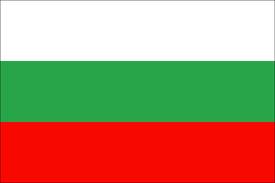
Alla chiusura delle urne migliaia di persone sono scese in piazza a Sofia per protestare. Il rinvenimento di ben 350mila bollettini falsi da parte della polizia alla vigilia della consultazione ha ulteriormente acceso gli animi.
Il rischio di stallo politico è adesso altissimo. Considerando le dichiarazioni della vigilia e l’esito delle votazioni, nessuna formazione ha la forza per governare da sola. A meno di sorprese servirà un accordo sul tipo delle “larghe intese”. Nel febbraio scorso Boiko Borisov fu costretto alle dimissioni, quindi alle elezioni anticipate.
La Bulgaria, dal 2007 membro dell’Unione europea, vive un momento particolarmente difficile. La crisi economica, la corruzione e i bassi standard di vita hanno provocato delusione ed apatia tra la popolazione. La disoccupazione si aggira ufficialmente sul 12%, mentre secondo altre fonti sarebbe invero del 18%.
Восточная Европа – это неинтересно.
10 Apr 2013« … В последнее время статьи о России, об СНГ, о Восточной Европе стали менее востребованными в международной прессе. Даже немцы со своим традиционным интересом к востоку закрыли ряд корпунктов в Москве. Пора признать очень неудобную правду для такого профильного журналиста, как я: Россия сегодня — немодная, Украина — скучная, как и всё СНГ, а бывшие соцстраны, каждая со своей скоростью, уже более-менее интегрировались в ЕС. 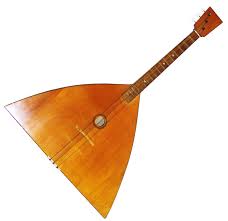
Политическая динамика в этом макрорегионе ясна, и в ближайшие времена резкие перемены не ожидаются. Непростая для журналиста ситуация усугубляется еще и резким падением влияния этих стран на судьбы человечества…
В глобализированном мире ситуация кардинально изменилась: границы открыты, люди свободно путешествуют. Технологическая революция дала широкие возможности любому гражданину и СМИ….
Какие сейчас самые привлекательные для СМИ текущие события в мире? Давайте попробуем перечислить.
Энергетическая революция в США и Северной Америке в целом.
Китайское развитие.
Иранский и северокорейский ядерные планы.
Проблема суверенитета островов в Желтом море.
Последствия «арабской весны» в Африке и на Ближнем Востоке.
Посткризисная эволюция в политике и финансовой среде ЕС.
Бразильский экономический бум и бурная обстановка в Венесуэле.
Религиозные перемены в католической церкви…
А что Россия? Что она делает во время столь бурных мировых перемен? Какие ответы дает на вызовы современности?…
Грустно об этом говорить, но, похоже, скоро придется ждать нового падения метеорита или первого боя чемпиона по боксу Виталия Кличко в Верховной раде, чтобы мир снова обратил внимание на Россию или на Украину.
Статья – Джузеппе Д’Амато Московский Комсомолец Giuseppe D’Amato Moskovskij Komsomolets.
“Let’s first say that the economic crisis is not a euro crisis. There are also economic difficulties in countries that do not have the euro – while at the same time, there are eurozone countries that don’t have any difficulties. In our accession treaty there is a part that says that we will introduce the euro as soon as possible. So it really is an obligation based on that treaty.
In the case of Lithuania, we already de facto have the euro because we have a currency board system that pegs the litas to the euro at a fixed, strong rate. And in reality, our monetary policy very much depends on the European Central Bank. We do not have monetary instruments of our own. We have only the obligations and restrictions and not the benefits that we would have if we had the euro. There are enough reasons to join the eurozone as soon as we can.”
Interview – Deutsche Welle – March 2013.
Шенгенские визы и ценности.
11 Mar 2013 «Эх, все-таки хочется России в заветную Европу! Если уж не в качестве государства — члена ЕС, как обещал к 2017 году Андрей Богданов, кандидат в президенты и один из могильщиков партии «Правое дело», так хотя бы без унизительного визового режима. Ведь именно его отмена является главным внешнеполитическим императивом России по отношению к Евросоюзу…. 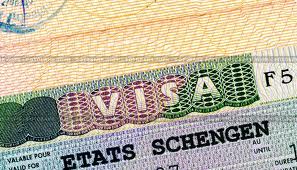
В Европе, глядя на сегодняшнюю Россию, нередко сомневаются, является ли она частью «общего европейского дома». Не только географически, но и с точки зрения ценностей….
Россия традиционно колеблется между тремя культурными направлениями — европейским, азиатским и так называемым «особым путем», о котором сразу вспоминают, когда нужно отмахнуться от критики с разных, в основном западных, сторон. Мол, мы занимаем 1/7 часть суши, и у нас другие порядки. Впрочем, мало кто знает точный ответ на вопрос, какие.
Согласно прошлогоднему опросу социологической компании «Левада-центр», всего 11 процентов россиян заявили, что чувствуют свою связь с Европой. В то время, как 52 процента не чувствуют совершенно никакой связи. Хуже того, по опросу 2007 года 71 процент жителей России вообще не считают себя европейцами…
Так, значит, россиянам на самом деле не место в Европе и зря их политическое руководство тратит силы на отмену визового режима?
На мой взгляд, современная Россия отнюдь не является ни «оплотом человечества», ни третьим Римом….
Статья – Иржи Юст Московский Комсомолец 11 марта 2013.
EU 2014 – 20 budget “will enable us to finish the physical modernization of Poland, the building of our roads, rail and scientific infrastructure, and a chance for us to catch up with the rest of Europe.”
“We would like to have Western-style neighbours on both sides of the border – which is easier said than done.” (Ukraine, Lithuania)
Audio – Polish Radio
Bulgaria, the nuclear row.
30 Jan 2013 Former Energy Minister Traycho Traykov has defined the January 27 referendum on the development of nuclear energy in Bulgaria as a “damaged item in democratic packaging.”
“The question was actually do you agree to buy it and throw it out or buy it and then eat it,” Traykov stated in an interview for Nova TV.
He said that it was highly doubtful whether the referendum had brought profits for anybody. 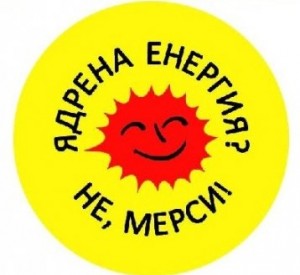
Bulgaria’s former Energy Minister suggested that there were several ways to interpret the results of the referendum.
“Of those who voted “no”, some voted against the Belene NPP, others against nuclear energy in general, still others against Belene NPP but for a seventh unit at the Kozloduy NPP, others against Belene NPP and against 7th unit, but for an extension of the lives of units 5 and 6, so there is a huge risk that you voted for one thing, while your answer is interpreted another way,” he explained.
He claimed that the referendum would still have resulted in nothing even if the question had been stated clearly.
“People told politicians that they are mature enough to understand when they are being sold a fake item,” Traykov pointed out.
Bulgaria’s former Energy Minister said that he had abstained from voting at the referendum.
According to preliminary results of the January 27 referendum on the development of nuclear energy in Bulgaria, a total of 60.55% voted in favor of the construction of a new nuclear power plant in the country.
With 97.14% of the votes counted, it emerged that a total of 832 742 people had backed the potential construction of a new nuclear power plant, while 522 927 had voted against.
The referendum was invalidated by low turnout, as merely 21% of the eligible voters cast ballots.
As the turnout is over 20%, and more than half of the votes are positive, the question is to be returned to Parliament for further discussion.
The government says it supports the provision of nuclear power from an existing plant at Kozloduy, but that it does not have the 10bn euros (£6.3bn; $13.4bn) it says would be needed to build a new plant.
Bulgaria had to close four of its old reactors at Kozloduy as a precondition for its 2007 EU membership.
The government froze plans to finish the plant at Belene last year, when work at the site on the southern bank of the River Danube was already well under way.
The Socialists are seen as closely linked to the Belene project, having granted a construction contract for the plant to Russian state company Atomstroyexport in 2008. They say Belene would now cost 4-6bn euros to complete, and would lower electricity costs for consumers.
Source: Sofia News Agency, BBC.
Early elections should be held as soon as possible in the Czech Republic, president-elect Miloš Zeman told Czech Television. Zeman said the center-right government is reliant on LIDEM, an offshoot of the Public Affairs (VV) Party which was never elected. PM Petr Nečas responded that the government is responsible to Parliament, not the president, and will continue as long as it holds a majority in the lower house. Zeman, a leftist candidate, won the Czech presidential elections with 54.8 percent Jan. 26, receiving half a million votes more than his conservative rival Karel Schwarzenberg. The voter turnout was 59.11 percent. 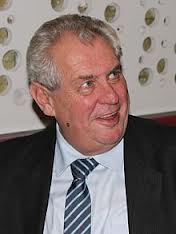
Czech subsidy recipients drawing from European Union funds have so far received 407.9 billion Kč for the program period 2007-2013, which is equal to 52 percent of the total amount the Czech Republic can draw in this timeframe, the Local Development Ministry announced today. In the last quarter of 2012, successful subsidy recipients received 38.5 billion Kč worth of European subsidies. Of the total amount of subsidies paid out to recipients by the Czech Republic, the Czech Finance Ministry has asked the European Commission (EC) for the payment of 233.9 billion Kč, or 29.8 percent of the total allocated amount.
The German government should not invite Zeman to Berlin due to his anti-German campaign, daily Die Welt claimed in an editorial. Zeman’s comments regarding the 1945 deportation of some 2 million Sudeten Germans from Czechoslovakia points to a language of hate that should not be tolerated in European politics, the daily wrote. Another German newspaper, Südwest Presse, referred to the president-elect as a “leftist dinosaur” who sowed fear in the minds of “little people” to get himself elected. “The Sudeten German topic is unlikely to have any political relevance for Zeman’s political practice. It just served him as a way to get to the Prague Castle,” the daily wrote.
Article, The Prague Post, Jan 28th, 2013.
In electoral campaign
Miloš Zeman
Age: 68
Party: SPOZ
Presidential amnesties: Would never declare one, even at the end of his presidency
Same-sex adoption: Would recommend it if the child’s life improved as a result
Church restitution: Thinks people should decide on the issue in a referendum
Nuclear energy: Favors atomic power and is for expanding Temelín
Right to veto: Would use this right if he felt the piece of legislation was bad
Communists in government: Would appoint them to respect the voters’ will
– –
“The enemy is the anti-civilization spreading from North Africa to Indonesia,” Zeman told a conference on European values. “Two billion people live in it, and it is financed partly from oil sales and partly from drug sales.” He went on to liken Muslims who believe in the Koran to Nazi supremacists.
While Zeman and Schwarzenberg have the same goal for Europe, their views on the rest of the world differ significantly. The former premier would focus more on growing links with Moscow (SPOZ is accused of having nefarious connections to several Russian businesses), while the latter would align himself more with the United States, having shown concern over the resurgent influence of President Vladimir Putin’s Russia.
Jonathan Crane – Article – The Prague Post
Due sono i favoriti della prima tornata elettorale: l’economista 68enne Milos Zeman ed il 62enne esperto in statistica Jan Fischer.
Con loro altri sette sono i candidati in lizza. Le previsioni della vigilia danno per scontato che nessuno riuscirà ad ottenere più del 50% dei voti per essere eletto già ora presidente. Si tornerà così alle urne il 25-26 gennaio prossimo per il ballottaggio. 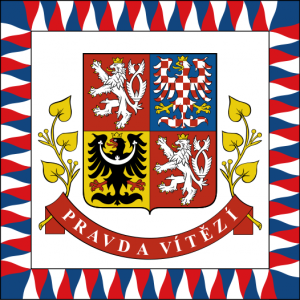
Dopo due capi dello Stato eletti dal Parlamento, Vaclav Havel e Vaclav Klaus, la Repubblica ceca ha deciso ora di cambiare sistema elettorale per evitare le passate contrapposizioni.
Sia Zeman che Fischer, ambedue ex premier, hanno posizioni più morbide con Bruxelles a differenza dell’euroscettico conservatore presidente uscente Klaus, il cui mandato scade il prossimo 7 marzo.
Il primo è tornato alla politica dopo anni di assenza, mentre il secondo si è segnalato per la buona conduzione del semestre di presidenza ceca dell’Unione europea.
Secondo la Costituzione in vigore il capo dello Stato ha il potere di scegliere il primo ministro sulla base delle elezioni legislative e di selezionare i membri della direzione della Banca centrale. Con l’approvazione della Camera alta del Parlamento il presidente nomina i giudici della Corte Costituzionale.
Венгрия и Россия в постсоветской Европе.
20 Nov 2012 «Лишь 45% населения Венгрии имеет представление об истории и литературе России — такие данные обнаружило исследование общественного мнения, проведенное по просьбе Центра русистики Будапештского университета имени Этвеша Лорандата.
В ходе исследования была опрошена тысяча человек — по репрезентативной выборке. Выяснилось, что 47% населения в первую очередь определяет Москву как центр империи — или Советского Союза». …
Статья – Петер ШОМФАИ – МК 19.11.2012
Welcome
We are a group of long experienced European journalists and intellectuals interested in international politics and culture. We would like to exchange our opinion on new Europe and Russia.
Categories
- Breaking News (11)
- CIS (129)
- Climate (2)
- Energy&Economy (115)
- EU Eastern Dimension (85)
- Euro 2012 – Sochi 2014 – World Cup 2018, Sport (43)
- Euro-Integration (135)
- History Culture (198)
- International Policy (261)
- Military (74)
- Interviews (18)
- Italy – Italia – Suisse (47)
- Odd Enough (10)
- Poland and Baltic States (126)
- Religion (31)
- Russia (421)
- Survey (4)
- Turning points (4)
- Ukraine (176)
- Российские страницы (113)
Archives
- November 2020
- October 2020
- September 2020
- August 2020
- July 2020
- May 2020
- April 2020
- March 2020
- January 2020
- December 2019
- November 2019
- October 2019
- September 2019
- August 2019
- July 2019
- June 2019
- May 2019
- April 2019
- March 2019
- February 2019
- December 2018
- November 2018
- October 2018
- September 2018
- August 2018
- July 2018
- June 2018
- May 2018
- April 2018
- March 2018
- February 2018
- January 2018
- December 2017
- November 2017
- October 2017
- September 2017
- August 2017
- July 2017
- May 2017
- March 2017
- January 2017
- December 2016
- November 2016
- October 2016
- September 2016
- July 2016
- June 2016
- May 2016
- April 2016
- February 2016
- January 2016
- November 2015
- October 2015
- September 2015
- June 2015
- April 2015
- March 2015
- February 2015
- January 2015
- December 2014
- November 2014
- October 2014
- September 2014
- August 2014
- July 2014
- June 2014
- May 2014
- April 2014
- March 2014
- February 2014
- January 2014
- December 2013
- November 2013
- October 2013
- September 2013
- August 2013
- July 2013
- June 2013
- May 2013
- April 2013
- March 2013
- February 2013
- January 2013
- December 2012
- November 2012
- October 2012
- September 2012
- August 2012
- July 2012
- June 2012
- May 2012
- April 2012
- March 2012
- February 2012
- January 2012
- December 2011
- November 2011
- October 2011
- September 2011
- August 2011
- July 2011
- June 2011
- May 2011
- April 2011
- March 2011
- February 2011
- January 2011
- December 2010
- November 2010
- October 2010
- September 2010
- August 2010
- July 2010
- June 2010
- May 2010
- April 2010
- March 2010
- February 2010
- January 2010
- December 2009
- November 2009
- October 2009
- September 2009
- August 2009
Our books




